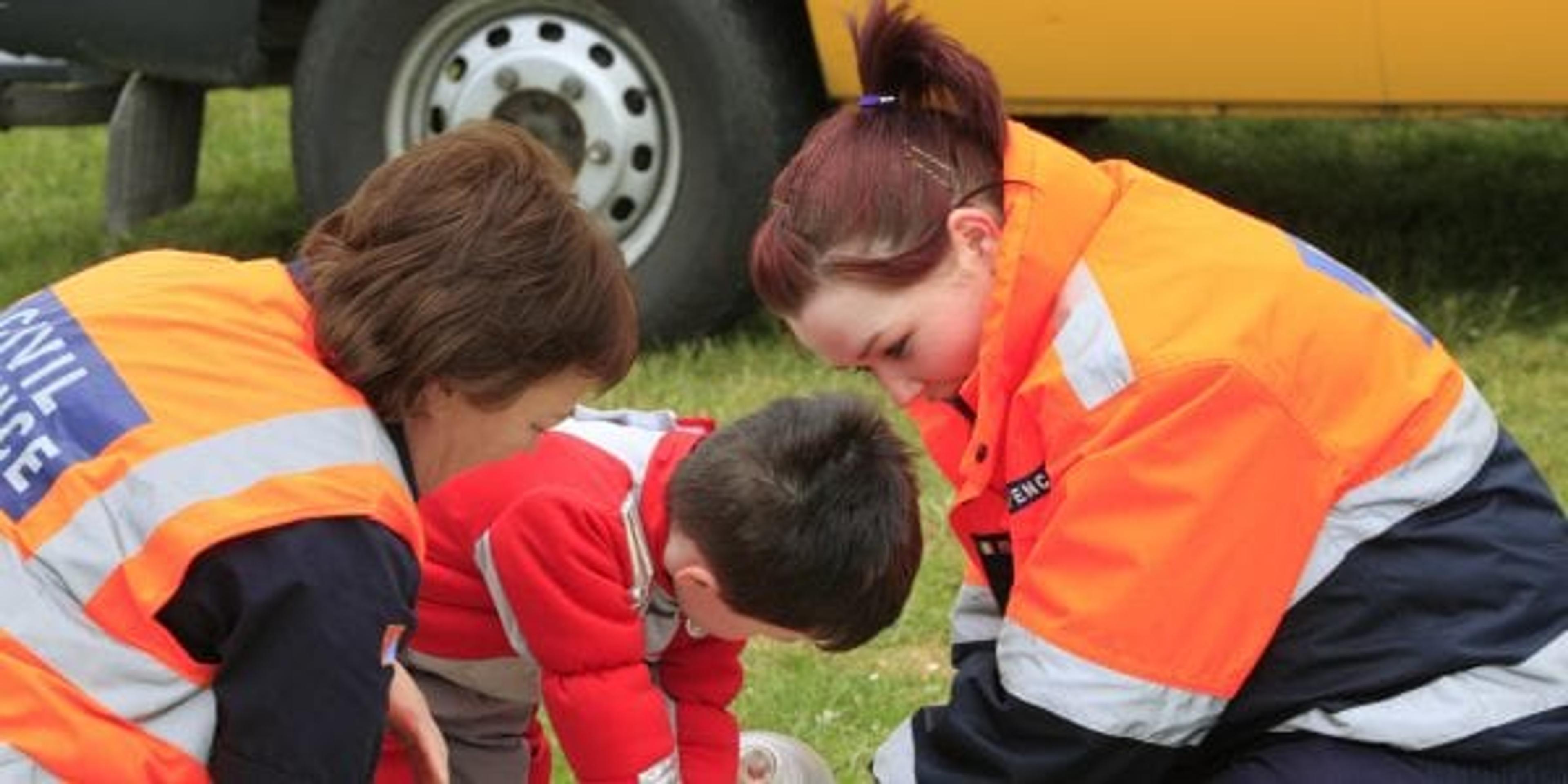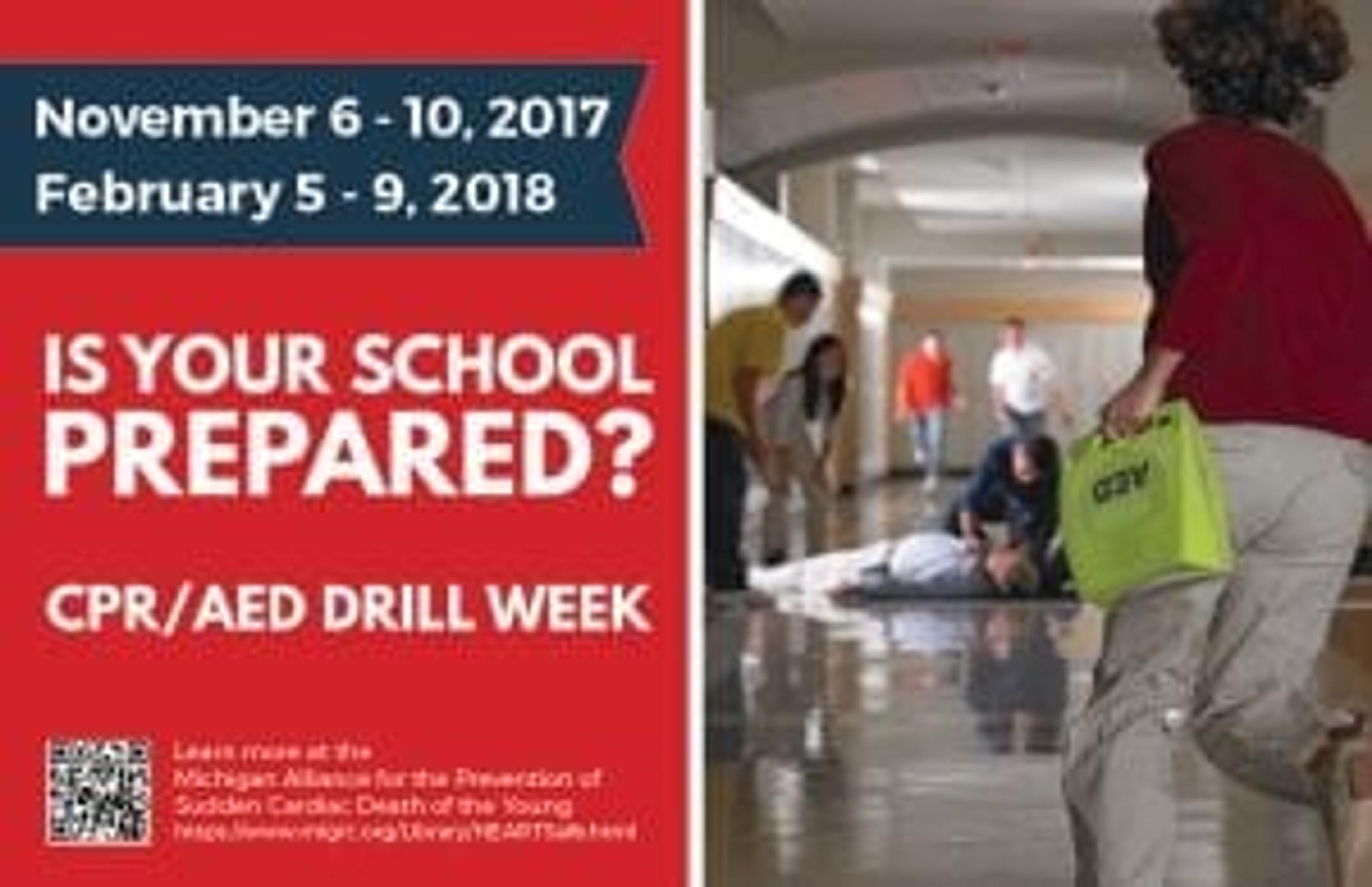Is Your Child’s School Prepared for a Cardiac Arrest?
Guest Blogger
| 3 min read

Michigan law requires schools to have a written cardiac emergency response plan, but to truly be effective, those plans must be practiced and tested at least annually. Given the pressing and competing demands schools face, why do cardiac arrest drills matter?
The American Heart Association reports approximately 350,000 people suffer cardiac arrest in community settings annually, with only 10 percent of them surviving. It is a significant public health risk with an extremely high death rate. On any given day, 63.6 million students and staff are in school settings. Schools must be prepared.
The week of November 6-10, 2017 and February 5-9, 2018 mark two important weeks designated for CPR/AED drills, also known as cardiac arrest drills, within Michigan schools.
Cardiac arrest requires immediate intervention to avoid death or permanent neurological damage. Every 60 seconds without treatment (CPR and defibrillation) decreases the likelihood of survival by up to 10 percent. Without prompt CPR to help maintain blood flow to vital organs and the shock of an automated external defibrillator (AED) to reset the heart’s natural rhythm, victims usually die. The evidence strongly supports the fact that CPR and early defibrillation save lives.
Running a cardiac arrest drill allows a school, or any organization for that matter, to see if the written plan can withstand the challenges of a real-life, emergency scenario. Simulating a cardiac arrest allows responders to see the impact of their actions, or inaction, without true life-and-death consequences. It allows a school to uncover the strengths and weaknesses that are present in every plan, while engaging the team and encouraging collaborative learning.
Test your school’s plan. Whether you choose to do it during one of these prescribed weeks or not, please just do it. Evaluate your written response before the stakes are too high and someone’s life hangs in the balance.
If you would like more information on cardiac arrest drills, visit the Michigan Alliance for the Prevention of Sudden Cardiac Death in the Young at this website.
If your school is located in Saginaw, Bay or Midland counties, you can also contact the Pulse3 Foundation for assistance ([email protected] or 989-754-7283).

About the Author:
Diane Fong is the CEO of the Pulse3 Foundation, an organization dedicated to improving heart health in mid-Michigan. Pulse3 is a member of the Michigan Alliance for the Prevention of Sudden Cardiac Death in the Young. Fong currently serves on the Blue Cross Blue Shield of Michigan’s Central Michigan Advisory Council.
If you enjoyed this post, you might also like:
Photo Credit: Greg Clarke





